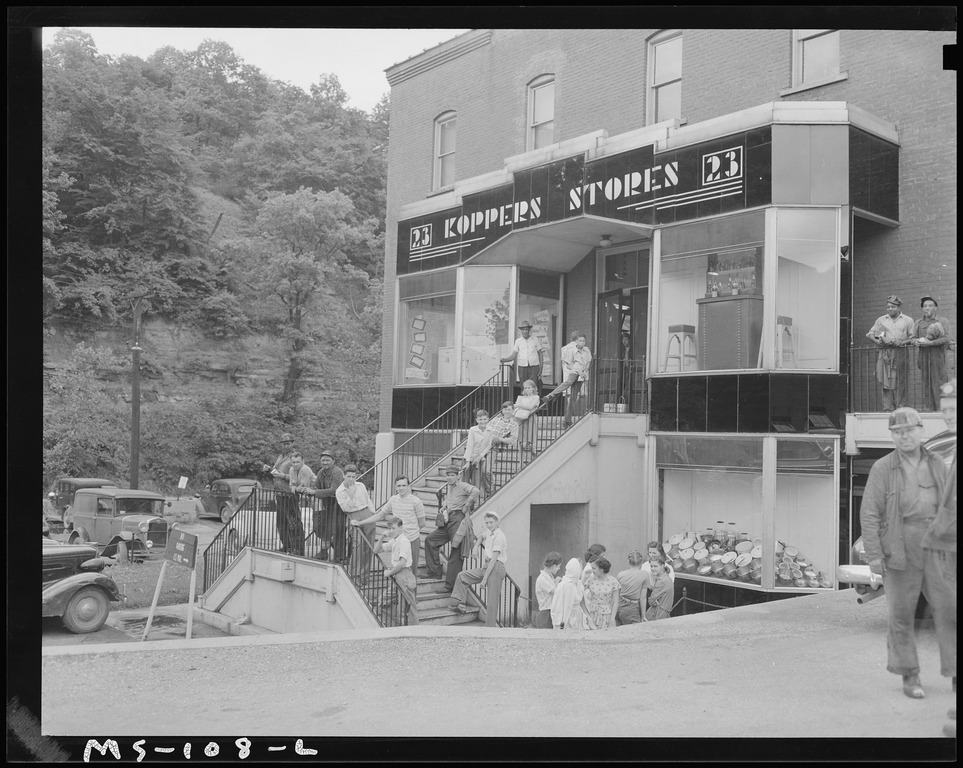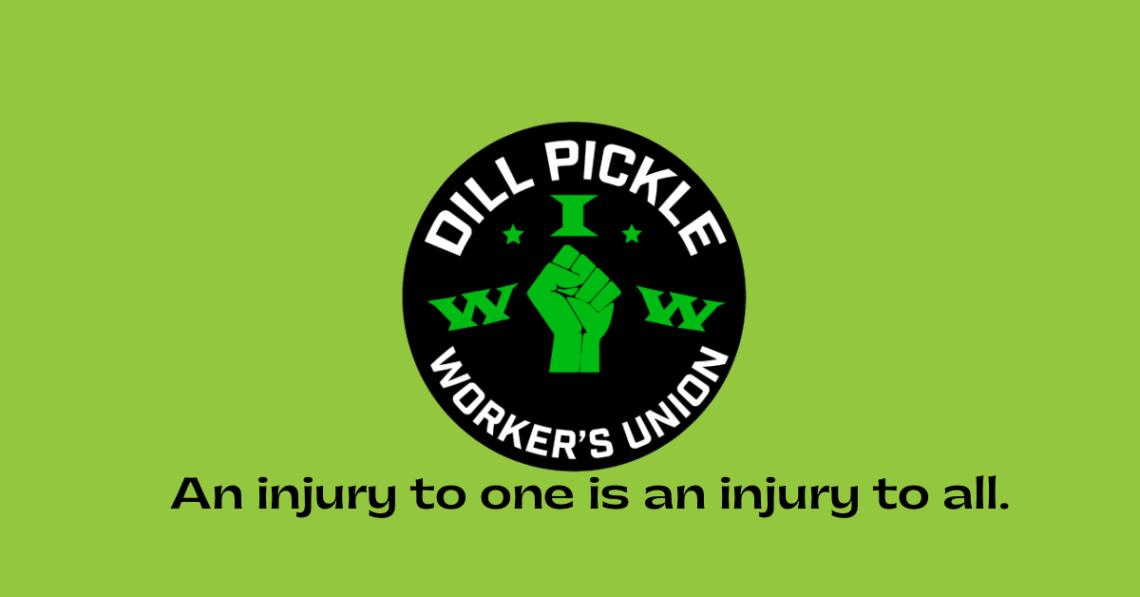I grew up in a small town nestled in the mountains of West Virginia, where stories of the coal wars and the exploitation of Appalachian labor were everywhere. I remember the day that a classmate brought a giant sack into history class, filled with coal company scrip to show how our forbearers were not even paid in legal currency. The idea that this had happened only a few generations back horrified me, even as a kid. Years later I would relocate to Chicago where I worked a few banal desk jobs for large corporations, thinking little of the tales of union bravery I grew up with. It was only after my last company decided my job would be outsourced to India, to a person they could pay mere pennies to, that these stories would become relevant to me once again. After a year of working odd jobs teaching axe throwing, rebuilding Hammond organ amps, and freelancing in video production, I finally found what I thought would be a stable source of income by working at the Dill Pickle Food Coop, just down the street. The coop had appeal – progressive messaging, community ownership, and the promise of a “chill” work environment. Eager for health insurance, I accepted a position in their produce department.

It did not take long for me to realize that the Dill Pickle was not all it was cracked up to be. The “democratic principles” that co-ops boast in their marketing materials, it turns out, extend merely to its customer-owners and not to employees. “Democracy” was behind a pay wall. Unsure of what to do, I decided to grit my teeth and bear it. Only after seeing a poster that a fellow worker placed on the wall that informed me that Dill Pickle did, in fact, already have a legally elected union, IWW IU 460, did I see an avenue for change. A few other employees and I got our red cards and immediately began organizing around the issue of our coworker’s termination on bogus and contradictory claims. Other employees soon followed suit, but the true “call to arms” was the ongoing COVID-19 pandemic. Although we successfully petitioned for an increase in hazard pay, management still denied that our union existed (a claim that could be debunked with a single Google search).
Although the NLRB ruled in our favor, and we successfully negotiated our first union contract, our bosses still find new and increasingly desperate ways to try and undermine our union. Rather than having management’s intended effect of breaking our spirit, this has bolstered our solidarity. Participation in union activities is at an all-time high, running counter to our bosses’ narrative that the union is just a few disgruntled rabble rousers. This is a testament to the way the IWW organizes. Rather than sit back and let one of our suits argue with one of their suits, workers get the empowering feeling of being a part of the conversations that shape the landscape of their shop. The old union-busting slogan of “the union is an outside party” crumbles under even the smallest amount of scrutiny in an IWW shop. If workers need to speak to the union about an issue, it is as simple as passing their fellow workers in the hallway or on the shop floor.
I have had the privilege of serving as a shop steward for the last six months and in that time, I have gotten to bargain for memorandums of agreement, initiate and orient new members, represent workers in disciplinary meetings, and help workers file grievances. While I never would have expected this as a school kid in West Virginia, I consider aiding my fellow workers as a shop steward to be one of the great honors of my life. While the position comes with its fair share of headaches, unwelcome extra attention from bosses, insults from anti-labor online trolls, and more legal jargon than ever thought I would know, I still feel a pang of pride every time I fix that steward button to my shirt before leaving for the day, and the opportunity to serve my fellow workers is something that the employing class will never drain the joy from, no matter what backwards and hateful tactics they try.
Dill Pickle faces a lot of challenges in the coming weeks. Rampant financial mismanagement, impending lay-offs, and an attorney with a reputation for busting organized labor are all hurdles placed in our path. It is likely, if not entirely guaranteed, that blame for the store’s hardships are going to be slung at the union, and myself, for anything that befalls the store. Regardless, I am grateful for the opportunity to stand shoulder to shoulder with my fellow workers and let the bosses know that an injury to one is an injury to all.
If I had any advice for the next hillbilly kid in history class, shuddering at the brutality inflicted by capitalist class, it would be to join the one big union as soon as you can and start organizing, because when we stand together, we truly are unstoppable.

Learn more about what is happening at Dill Pickle Food Co-op from the workers at:
Dill Pickle Worker’s Union (@iww.dpfc) • Instagram photos and videos

